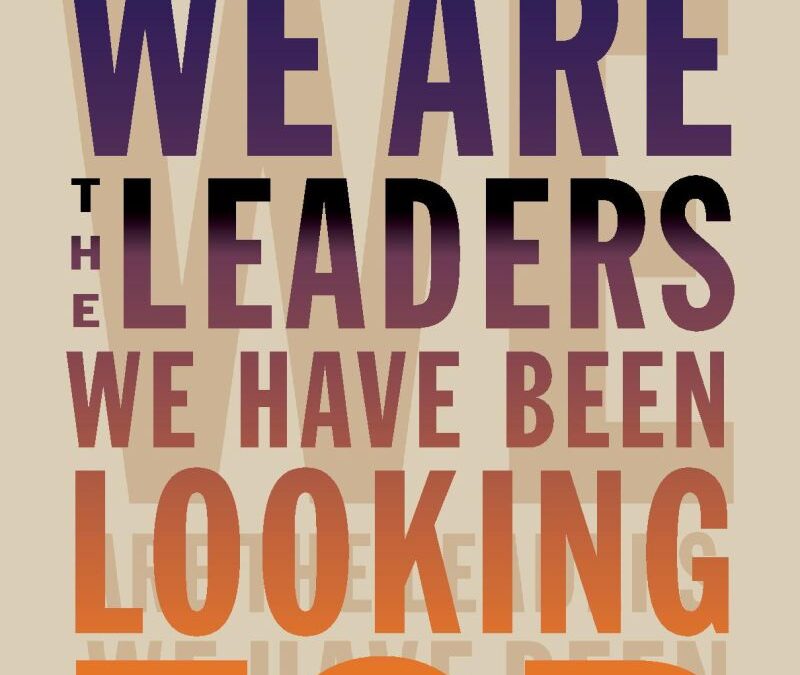
by Maina Mwaura, Urban Faith Contributing Writer | Nov 11, 2024 | Black History, Commentary, Headline News, Social Justice |
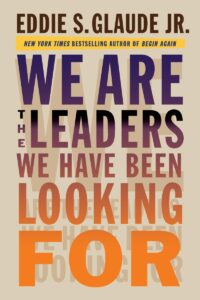 Maina
Maina
Man, one of my favorite authors, I mean, I just want to be blunt with you. Every time I see you on Meet the Press, Eddie, I’m always like, he is dead on about something. I don’t know where it comes from. So where were you when you said to yourself, “Self, I need to write a book [like] We Are The Leaders that We’ve been Looking For?”
Dr. Glaude
You know, this book is based on a set of lectures I delivered like in 2011. And I was so angry at that moment. Everybody was excited about the Obama presidency. And I was angry in some ways, doc, that people were reading Obama’s presidency as the fulfillment of the black freedom struggle. That that’s what the object of all that sacrifice was for, was to get a black man in the White House. And I just thought, that’s not true. What happened to love, what happened to justice, what happened to the moral dimension of the movement? I wanted to think through that. I wanted to figure out what were we relinquishing, what were we giving up in that moment. And then fast forward, all these years later, I returned to those lectures. And I returned to them because in some ways I had lost my footing. I was trying to figure things out because COVID had disrupted so much, I had lost two partners. I felt like I was unmoored, untethered as it were. And I knew these lectures were a moment when I was trying to usher in a new way of being for myself, a new way of thinking for myself, a new way of writing for myself. So I wanted to go back to that moment. And lo and behold, I saw what I was trying to do differently. So all of this happened in the summer of 2023. And I got to work. And then I submitted the manuscript to the editor at Harvard University Press and they were like, OMG, let’s get this out as soon as we can.
Maina
What would you say to people who feel the disillusionment of people who are going, “I don’t want to be the leader?”
Dr. Glaude
I think part of what I’m trying to argue is that when we outsource our responsibility for the house [of this country], when we say, well, I don’t want to pay the mortgage then we know what’s going to happen. And so we cannot outsource our responsibility for democracy any longer to so called prophets, to so called heroes, to politicians. We have to understand this is where Ella Baker, Miss Baker, is so important that we are our salvation in this instanc. Of course, that that doesn’t disregard one’s faith claims, but it’s what we do.And there’s a somewhat cliche at the heart of the book. And that is that if we are the leaders we’ve been looking for, then we got to become better people. We got to reach for higher forms of excellence. James Baldwin used to put it this way, the messiness of the world is often a reflection of the messiness of our interior lives. So if we don’t begin to do that hard work on becoming better people, then we can’t be the source of significant change. But I also should say this, doing the hard work of becoming a better human being must take place alongside of [and] within our ongoing effort to make a more just world. Because the world as it currently is organized gets in the way of us becoming better people. It’s almost like you’re rewarded to be selfish, you’re rewarded to be greedy, you’re rewarded to be mean spirited, you’re rewarded to be self-regarded. You’re not rewarded if you’re other regarded, if you’re not regarded if you have an I, thou relationship [with others as non-objects], you’re not regarded if you’re committed to justice, if you’re committed to the least of these, you see what I mean? If you’re maladjusted to an unjust world, you’re not rewarded. So we got to do the hard work of self-cultivation in pursuit of a more just world. That’s the heart of the book.
Maina
Which one of these people did you fall in love with the most? You’re taking some of the very, very best and you’re dropping them right in front of us and there are nuggets right in front of us. Which one did you go, “I am more in line with this leader.”
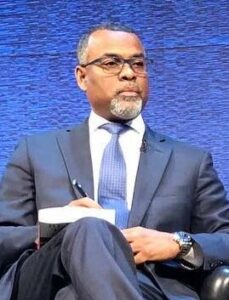 Dr. Glaude
Dr. Glaude
It depends on what age you ask me. So when I was a young kid growing up in Mississippi, Dr. King meant everything. I remember checking out the album, show you how old I am. It was the vinyl of Dr. King’s “I Have a Dream” speech. It was the March on Washington. And I remember stopping it and learning it by memory from Mrs. Mitchell’s eighth grade history class. And Dr. King was so important to how I imagined myself. When I got to Morehouse, you’re baptized in King’s thought. You got the statue of him looking at you. And so King was so important for me at a young age. But then when I got to Morehouse, Malcolm became my guy. And I have my goatee to this day. I will never cut it off as kind of testimony from my first conversion experience, reading The Autobiography of Malcolm X. So here I am excited to be at King’s Alma Mater and my freshman year, this guy walks up to me and said, “You’re like a hand without a thumb. You don’t know who you are.” And he gave me Malcolm X’s autobiography. And I read it that night. And I found the language for my father’s anger. I found the language for how to imagine myself as a man, given the fact that I was so afraid because my father scared me to death. Malcolm became this hero of mine that I cut my political teeth on. And now here I am in my fifties. And Miss Baker is all up in me. It’s a more mature voice, I suppose, but we wouldn’t have a black freedom struggle of the 20th century if it wasn’t for her. And the way in which she has that wonderful line, “A strong people doesn’t need a strong leader.” And I said this once, I was speaking, I think it was in Chicago. I was like, “What happens when you have fans in the pews and a celebrity in the pulpit?” The church is dead. It’s done. I think we’re seeing a lot of that right now. What happens when you outsource your faith journey to someone else? And so part of what I’ve been trying to do is to live Miss Baker’s edict. Because the title of the book comes from her. We are the leaders we have been looking for. She says, “We have to convince people that their salvation is in their hands.” What we choose to do. Not what the preacher chooses to do, not what the politician chooses to do. So not what Malcolm inspired me to do, not what King leads me to do, but what’s coming from inside of my heart in light of the exemplars of excellence and love that inform and shape my own voice as I understand it. And that’s what I’m writing towards in the book.
Maina
You keep talking to me. So last question. Sure. Your spiritual faith journey, did that come into play in this book at all?
Dr. Glaude
It’s at work in all of my texts. To be honest with you, it’s me trying to understand what does it what does it mean to be decent and loving? What does it mean to exemplify the ministry of Jesus without it being overlaid with dogma and an institutional constraint. So when I call for a coalition of the decent, animated by the power of love, that is the exacting power of love. That is that is at the heart of my religious Christian witness, as it were. And there’s a moment in the book near the end where I’m going to invoke Jimmy Baldwin again. He has this extraordinary essay that is published after his after his death is entitled “To Crush A Serpent.” And in this in this essay, he is relentless in his critique of the Fallwells and the moral majority and the like. But he talks about what salvation involves, what it entails. And it’s an echo of an earlier essay, a talk that he gave at Kalamazoo in 1961, entitled “In Search For A Majority.” And he says salvation is found in effect in “the going towards.” Salvation is found in the going towards in some ways. And I want to suggest that salvation is found in the going towards and love is its carriage. So the short answer to the question is, is yes, me trying to figure all of this out, indebted to the Christian tradition, but not limited by it. Those lectures produced an uncommon faith. So the short answer is yes, all my books are or attempts to make sense of this complex journey that I’m making in terms of my faith.
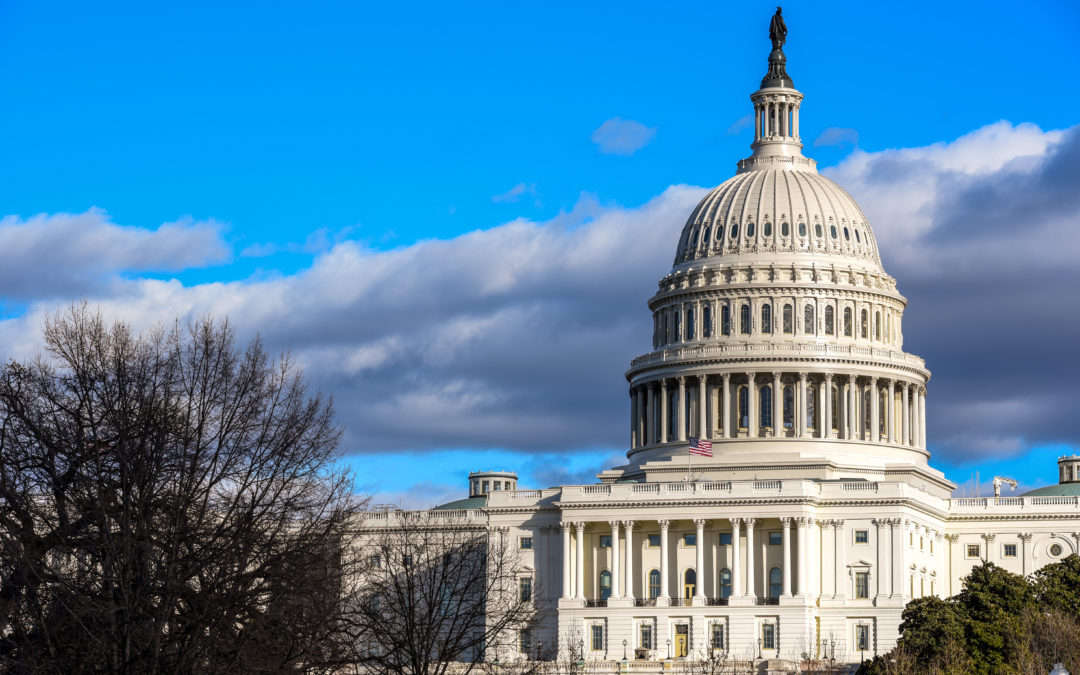
by Edward Ford Jr. | Aug 19, 2024 | Black History, Commentary, Headline News, Social Justice |
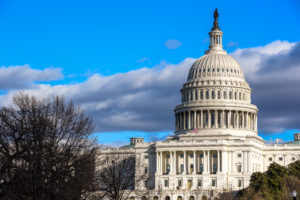
“We hold these truths to be self-evident, that all men are created equal, that they are endowed by their Creator with certain unalienable rights, that among these are life, liberty and the pursuit of happiness.”
These words are among the opening lines of the Declaration of Independence. It is a bold declaration, and one that we as a nation should in every era strive towards. However, the reality is that we have yet to attain this ideal. These words written should remind each of us that we are made in the Imago Dei – the image of God. We are entitled to inalienable rights. What is an inalienable right you might wonder? It is a right to freedom; a right to have your voice heard; a right to have clean air, water, food and housing. These rights were given to us by our Creator and therefore, no government should be able to deny them. Again, we have had to strive in many ways to live up to this standard. The horrific legacy of treatment towards indigenous people, race-based chattel-slavery, lynching, black codes, Jim Crow, Voter Suppression, Red-Lining, and Mass Incarceration are indicators to us that we are still on the journey to living up to what was written in our Declaration. Within each generation there is a remnant of people of good faith who must decide to call out the present injustice and reject evil and wrongdoing at every angle.
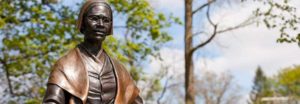
Sojourner Truth Memorial in Florence, Massachusetts.
Lynne Graves, CC BY-ND
During the Abolition Movement, Frederick Douglas and Sojourner Truth were among abolition leaders who were led by their deep Christian faith to push for the abolition of race-based chattel slavery. They looked to the Declaration of Independence as a document that applied the moral laws of creation to our newly formed nation and how all people ought to be treated. The use of the declaration was much a part of the argument for abolition, and rightfully so. The argument was to highlight blatant hypocrisies that were being ignored for the benefit of the planter class. The same argument was used during America’s 2nd Reconstruction, the Civil Rights Movement of the 1950s-60s. Our country is much familiar with the name of Reverend Dr. Martin Luther King Jr. and his famous “I Have a Dream” speech. How many of us truly know what was said in that speech besides “I have a dream”? The correct title of the speech that King delivered, was “Normalcy, Never Again.” Within this speech King is quoted saying, “When the architects of our republic wrote the magnificent words of the Constitution and the Declaration of Independence, they were signing a promissory note to which every American was to fall heir. This note was a promise that all men – yes, black men as well as white men – would be guaranteed the unalienable rights of life, liberty and the pursuit of happiness.” King was appealing to our nation’s better angels and trying to reveal to us the reality that we had not been true to what we wrote on paper. In his final speech, titled “I’ve been to the Mountaintop”, delivered before a Memphis crowd on April 3rd, 1968 the day before he was assassinated, King said “All we say to America is to be true to what you said on Paper”. King was referring back to our Declaration and the bold promises of liberty and justice for all we continue to tout to this very day.
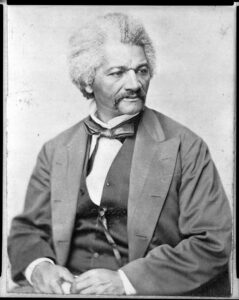
I raise the example of King, Truth, and Douglas, as they were each Christian leaders who gave themselves to the plight of justice in their respective eras. The lives of these American Christians among many others give us a glimpse into how we as Christians can engage in the movement for justice from a biblical worldview in our society today. We must ask ourselves as Christians, how can we aid in helping our nation truly live up to its highest ideals of liberty and justice for all? How can we progress our nation towards valuing everybody as image bearers in and throughout our systems?
First we have to look back at the scriptures and principles of God’s Word. Jesus shares the story of the Good Samaritan in Luke chapter 10:25-37, for good reason. He is breaking down cultural barriers and helping those of his day to see one another as fellow image bearers. Earlier in the chapter Jesus effectively answers a religious law expert’s question regarding the greatest commandments (v. 27). Jesus essentially had the man answer his own question! The passage is as follows: “He answered, ‘Love the Lord your God with all your heart and with all your soul and with all your strength and with all your mind’; and ‘Love your neighbor as yourself.’ ‘You have answered correctly,’ Jesus replied. “Do this and you will live.” But he wanted to justify himself, so he asked Jesus, “And who is my neighbor?” This is when Jesus shares the famous Good Samaritan story with him and how he was the only one of three people to stop and help the person who had just been beaten and robbed on the side of the road. The exchange between the two continues. In verses 36-37, Jesus asks him, “Which of these three do you think was a neighbor to the man who fell into the hands of robbers?” The expert in the law replied, “The one who had mercy on him.” Jesus told him, “Go and do likewise.”
This passage is timeless. It provides a view into God’s heart towards all of humanity, how Jesus came as the rendering of God’s mercy towards us, and how he requires us to show mercy to others. In Luke 4:18-19, Jesus makes his own opening declaration as he begins his three-and-a-half-year world-changing ministry. He says, “The Spirit of the Lord is on me, because he has anointed me to proclaim good news to the poor. He has sent me to proclaim freedom for the prisoners and recovery of sight for the blind, to set the oppressed free, to proclaim the year of the Lord’s favor.”
We who carry on the Great Commission, who have a duty to spread the Gospel to all, must recognize we have to fulfill this duty in word and deed. The early church in the Book of Acts spread the Gospel and they also initiated humanitarian help to those in need. There are so many issues in our modern world today, that we as the body of Christ have the capability to impact in a positive way. From helping the unhoused, resolving food insecurity in entire communities, to pushing our policy makers to make healthcare more affordable, and taking numerous policy actions that will uplift all people. We are to be a voice for the voiceless. There is no greater place of refuge and strength for the weary, the broken and the hurting than the church today. We must live the Gospel through our actions and that includes standing up for the poor, the marginalized, and the oppressed of society.
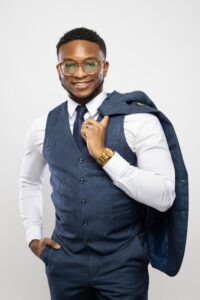 Reverend Edward Ford Jr. is a Former Elected Official in Connecticut, a Community Advocate, Organizer, Healthcare Administrator, and Public Theologian. He is currently studying for a Master’s Degree in Divinity at Yale University in New Haven, CT.
Reverend Edward Ford Jr. is a Former Elected Official in Connecticut, a Community Advocate, Organizer, Healthcare Administrator, and Public Theologian. He is currently studying for a Master’s Degree in Divinity at Yale University in New Haven, CT.
Sources:
National Archives. The Declaration of Independence. https://www.archives.gov/founding-docs/declaration-transcript.
Carla S. King and William M. King. “Be True to What you Said on Paper.” History Colorado. Jan. 14th, 2021. https://www.historycolorado.org/story/discourse/2021/01/14/be-true-what-you-said-paper
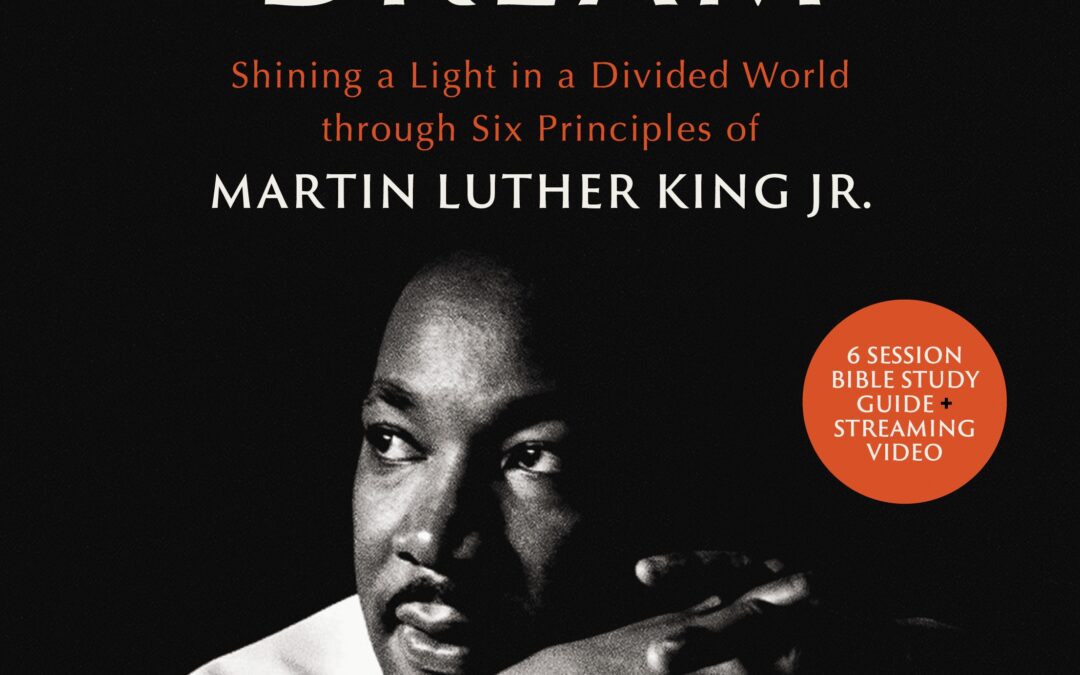
by Allen Reynolds, UrbanFaith Editor | Jan 12, 2024 | Black History, Commentary, Headline News, Social Justice |
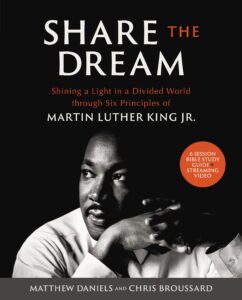 Save & Exit
Save & Exit
August 2023 is the 60th anniversary of the Reverend Dr. Martin Luther King, Jr.’s “I Have A Dream” speech and the historic March on Washington for Jobs and Freedom. UMI (Urban Ministries Inc.) has partnered with Harper Christian Resources, and the K.I.N.G. Movement to honor, celebrate, and share the lessons of MLK through the Share the Dream Project and curriculum. UrbanFaith sat down with the award winning journalist and Fox Sports commentator, K.I.N.G. Movement President, and co-host of Share The Dream Chris Broussard to talk about the project and MLK’s legacy 60 years after the “I Have A Dream” speech. The full interview is above, excerpts are below edited for length and clarity.
—–
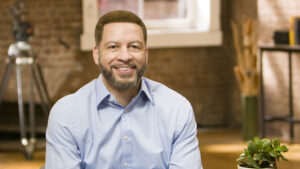
Chris Broussard co-host of Share the Dream
Allen
We are talking about something so special, which is the 60th anniversary of the Reverend Dr. Martin Luther King, Jr.’s “I Have a Dream” speech. It has inspired us and inspire others to honor and celebrate the legacy through a project called “Shared the Dream.” And so today I am here with the commentator, the journalist, the host, the co-host for this project, Mr. Chris Broussard, who has just been someone who’s been at the forefront of helping push the dream forward.
Chris
It’s great to join you, Allen. And wow, thank you for that introduction. I’ll try to live up to it in this interview, but it’s great to be with you guys at UrbanFaith. And this Share the Dream project is something that’s special, something that’s anointed, and something that we do hope and believe can have a great impact in our country.
Allen
In a lot of ways it feels like we see Dr. King as a meme, right? Like it’s just a picture on social media with a quote taken out of context. People don’t even know for the I have a dream speech, that he starts with laying out the problems before he gets to a vision for what we could do together. Can you talk a little bit about what it looks like to have a vision going forward and why it’s so important to learn from our history and address those realities before we rush to the vision that God might have for us being united and being one?
Chris
No, that’s a great question. Because a lot of times you hear talk about racial reconciliation. And to some people, like I said, does that mean a hug? Does that mean, you know, just some superficial gatherings, but not addressing the issues that left us unreconciled and leave us unreconciled? As you said, most people don’t even know that Dr. King addressed those issues before he said, “I have a dream” and all that stuff. And of course, later in his life, he really to some degree was distraught and disheartened when he really looked at the economic differences. And obviously he knew that [before]. But, in the South the racism was so overt that they were addressing those situations. Blacks couldn’t go here; blacks couldn’t go there. You just address those issues. And then we went up to the North and you saw the economic conditions that many Africans Americans were living in. In the North there [wasn’t persistent] legal segregation, but blacks were clearly getting the short end of the stick. It really disheartened him, and he had to rethink and was in the process of even thinking like, “Okay, how are we going to address this?” And he did have ideas and he talked about redistribution of wealth and all that stuff.
I think the key is that, our white brothers and sisters, particularly in the church, have been miseducated on the history of America. All the talk about a great Christian nation, and manifest destiny and the city on the hill. What about the way African-Americans and Native Americans were treated? And so that miseducation informs the way a lot of whites view the racial situation today. And by using a lot of Dr. King’s principles and teaching, like we want to hopefully shed light on how the true racial history of America, as bad as it was, in the past, but also how it impacts us today. How it impacts the disparities you see today and the tension and the distrust that you see today and all the events that we’ve seen in the past few years. All of that is a remnant to some degree of much of the past. The wealth gap. That’s not just because whites have worked hard, and blacks haven’t. It’s not because of that at all. It is because of things like the federal housing administration loans that were given out to mainly overwhelmingly white Americans in the from the 1930s on into the 1960s that built these beautiful white suburbs. The red lining of the African-American neighborhoods that have cost African-American families on average hundreds of thousands of dollars. These are the things [that must be addressed]. It’s not just let’s go have dinner together and be friends. It is let’s address these economic issues that really were created by the racism of the past and address the those. And then [there can] be some real racial unity and we can have some real robust discussions about how we can solve these problems that we have today. So yeah, I think that’s, you know, part of what we’re trying to do with Share the Dream.
Allen
[In this curriculum] you outline the six principles of Dr. King’s legacy beautifully: Conscience, justice, perseverance, hope, freedom, and love.] What principles have you seen stand out in your own life or be most influential to you or what were your favorite ones to share in the series?
Chris
Yeah man, there’s so many. I think to some degree I’ve addressed a little bit of the conscience of really making America in particular, many of our white Christian brothers and sisters aware of the true history of this country. I’ve talked to whites who have talked about city on the hill and the great Christian heritage of America, who have talked about slavery as if it was just a little blind spot. It was just a little mistake. I’m like “No, you understand that the reason America was able to become the greatest superpower we’ve ever seen was on the backs of slavery.” So that is a part of it trying to just awaken that consciousness within white Americans to understand. So, I think that’s the conscience. I could focus more on justice as well. Yes, we see overt acts [of racism] here and there. But a lot of it is subtle. If you if you don’t have a deeper understanding of it and really dig beneath the surface, you can get the wrong idea of the racial situation in America today. [Racist policies] created the wealth gap and all of that, that’s a part of the justice we need to look at. I’ll quickly just throw out one more, the perseverance. Like a lot of time, I think a lot of people have been beaten down, particularly African Americans by the situation in America today, by the persistence of the oppression. Where they have given up, where they just decided, nothing can improve for us overall or for me individually. It can affect your decision making and things like that. Whereas you look back in the day when Dr. King was marching and even before that, in the face of even worse oppression, you did have, I would say, you probably had more perseverance and hope within the Black community than you do today. And I believe a lot of that was because Dr. King and many of the people that were working with him were rooted in Jesus Christ. And when you’re rooted in Christ, no matter how bad things look on the outside, you will have hope. As bad as things look in this country, I do have hope because of the gospel and the transformative power of the gospel and how it can change a person and a people’s outlook on life, worldview, and decision-making behavior, all of that. And I think that’s what our ancestors had. And that’s what gave them the perseverance and the hope through slavery, through Jim Crow. We have more opportunities and freedom today, but many of us lack the same perseverance and hope that our ancestors had. So that’s something I would wanna highlight as well. Why did they have that hope? Let me tap into that reason behind their perseverance.
Allen
Yeah, I mean, they were so rooted in their faith. And I really appreciate this series pointing that out, highlighting that, bringing that to the forefront, because a lot of times people forget that Dr. King was a minister, right? Like he wasn’t just some great speaker and marcher, he was a minister. You got to work with his friend Andrew Young who was there. What are some of the lessons that you feel like people take away from being able to hear from some elders and from some other folks who are part of the project in the video series in the curriculum?
Chris
Well, I think that’s a great question. I think Ambassador Young, he obviously gets accolades and people understand and talk about what he did in the past and his involvement in the movement and all of that. But I don’t think people understand and fully give him the credit for just being how great of a man he is. And to your point, a man of faith. People want to divorce the faith of Dr. King from what he did. They want to divorce [him from his faith]. I could go on and on Frederick Douglass, Harriet Tubman, even Marcus Garvey who [was] a Christian. People want to divorce or [history from faith]. They want to look at these great actions of our ancestors and yet and not look at the sources of their power and the source of their wisdom and the things that they fought for and fought against and stated and so on and so forth. And Ambassador Young is also like that. Ambassador Young is a great man of faith. And I get that we should focus on the other things he talks about and the things he fights for. And everything’s not a religious conversation. But I think it is important that people understand, especially in this day and age, where faith is being marginalized. Christian faith has sustained us as a community and as a people and is now being marginalized, tossed aside, watered down and things like that. It’s important to see in a great man like Ambassador Young that his faith has always been vibrant and to this day is vibrant. And that that’s what motivated him and led him to be able to do and have the strength to do what he did.
by Natasha S. Robinson | Feb 7, 2013 | Entertainment, Feature, Headline News |

Mary J. Blige and Angela Bassett star as “Betty & Coretta” in Lifetime’s original movie (Photo credit: Richard McLaren/Lifetime.com)
The old saying goes, “Behind every great man, there is a woman.” I have observed, however, that “beside every great man, there is a woman.” Such is the case with Civil Rights advocates, Dr. Martin Luther King, Jr. and Malcolm X. While many are familiar with their stories, few know the stories of their devoted wives Coretta Scott King and Dr. Betty Shabazz. More surprisingly the friendship that formed between these two women after the assassinations of their husbands is an untold story.
That is until Lifetime boldly presented this bond of sister and womanhood in the television world premiere of “Betty and Coretta” last weekend. A corporate executive at A&E Network did confirm that the Shabazz and King families were not consulted for the film, noting the temptation for family members to protect their legacies. Given the documented inward fighting between siblings in both families, viewers can understand (at least partially) the network’s decision. Some of the heirs are not happy with the flick.
Ilyasah Shabazz, third daughter of Malcolm X and Betty Shabazz and author of Growing Up X, called the film “inaccurate.” There are a few grievances raised: Contrary to Ilyasah’s statement, there are several pictures available online portraying Dr. Shabazz’s head covered with a scarf. Whether or not Dr. Shabazz spoke on her death bed is somewhat irrelevant. The point is Mrs. King did come to be at her friend, Betty’s side in the days leading up to her death. According to the children, moreover, there was a house visit portrayed in the movie which never really took place. Whenever a person’s life is brought to a film there is a certain level of embellishment that goes with the territory because producers are attempting to share a big story in a finite amount of time; smooth transitions are needed to move the story line forward and still capture the big picture. With the aforementioned reasons in mind, one can hardly call Lifetime’s portrayal a work of fiction.
Lifetime took great care adding credibility to the film by featuring actress, Ruby Dee, as narrator of the movie and dear friend of the Shabazz family. The movie picks up right before the assassinations of Malcolm (February 21, 1965) and Martin (April 4, 1968), and opened with Ruby Dee (who recently turned 90 years old) setting the stage for the times of racism, war, and poverty in America. Throughout the film she continues sharing facts about the deaths of Dr. Martin Luther King, Jr. and Malcolm X, the Black National Political Convention (of 10,000 attendees where Coretta and Betty first met), the lobbying and six million signatures Mrs. King gathered to make Martin Luther King, Jr. a National Holiday, and she narrates all the way to the deaths of both phenomenal women.
The movie is not about Dr. Martin Luther King, Jr. (Malik Yoba), Malcolm X (Lindsay Owen Pierre), or their legacies per se. The movie is also not about the King and Shabazz children. The movie focuses on two women who were powerful, strong, faithful, and devoted leaders in their own rights. The film spans three decades and weaves the lives of these two civil rights activists and shares how they stood for justice.
The Women
A pregnant, Betty Shabazz (Mary J. Blige) and her four daughters watched her husband being gunned down as he took the stage to deliver what became his last message. After Malcolm X’s assassination, Betty delivered twin girls, which made her a single mother with six small children. With the help of friends and those in her community, Betty cared for her family and earned a doctorate degree in high-education administration from the University of Massachusetts. She became an associate professor of health sciences at New York’s Medgar Evers College. She spent the rest of her life working as an university administrator and fundraiser, before she died on June 23, 1997 as a result of injuries sustained by a fire her 10-year-old grandson, Malcolm set in her home.
As a widow, Coretta Scott King (Angela Bassett) raised four children while remaining a leading participant in the Civil Rights Movement. She went from being her husband’s motivator and partner in the movement to being a justice advocate to the world. In addition to lobbying for the national King Holiday (first celebrated in January 1986), she became president, chair, and Chief Executive Officer of The King Center in Atlanta, GA. At the end of the movie, Ruby Dee notes that Mrs. King died in 2006, nine years after Dr. Shabazz, from ovarian cancer.
The movie goes beyond their advocacy works and humanizes these valiant women. It is difficult to know for sure the intimate conversations that took place between the two. There is one living legend, however, who is knowledgeable of at least some of those conversations, and that woman is Myrlie Evers-Williams, wife and widow of the first NAACP field officer, Medgar Evers. As widows of the Civil Rights Movement, Myrlie Evers-Williams shared a special bond with King and Shabazz. In the book, Betty Shabazz: A Sisterfriends Tribute in Words and Pictures, she wrote about a healing spa retreat the three of them took together. During the retreat, they committed not to talk about the assassinations of their husbands or the movement; they simply bonded as sisters and friends. She also wrote that “the three stayed in contact and tried to get together whenever they could.”
Lifetime briefly mentioned the retreat at the end of the movie (hence the purpose of the Betty Shabazz hospital bed scene). However, Myrlie Evers-Williams’ character only makes a brief appearance in the film when Dr. Shabazz took the position to teach at Medgar Evers College. Maybe one day, Myrlie Evers-Williams will tell her side of this story.
What Their Stories Mean for Us
All things considered, I believe we have a reason to rejoice with the production of this film. Mrs. King and Dr. Shabazz came together to shepherd the legacies of their husbands, but that is only part of their stories. The bigger story is these women stood together and turned their tragedies into triumphs. Even more important, both women used their faith, family, and friendships to advocate justice on behalf of women, children, the poor, and oppressed. They stood together and changed the world.
A twitter reflection by @lativida sums it up well: Take note all you dumb reality shows! This is how REAL BLACK WIVES act! These women knew real pain and persevered! #BettyandCoretta.
Betty and Coretta were strong in their own rights. They were single mothers who became grandmothers and they took care of their families. They took the mantles that were passed to them and used them as a foundation to build their communities and our nation. They remind us, each of us (the single mother, wife, or young person of any gender), of what we can do with faith, friendship, and forgiveness, for this, yes this is how real black wives behave! Thank God for their tenacity, legacies, and friendship.
by Lewis V. Baldwin | Jan 15, 2012 | Feature |

In his excellent new book, Never To Leave Us Alone: The Prayer Life of Martin Luther King Jr.(Fortress Press), Vanderbilt University religion professor Lewis V. Baldwin examines an undervalued aspect of the civil rights movement’s effectiveness. With vivid stories and a scholar’s eye for the telling detail, Baldwin brings to the forefront the centrality of this vital spiritual discipline in both King’s public ministry and his personal devotion. Baldwin’s tome is a worthy and necessary addition to the annals of MLK scholarship. The following is an excerpt from the book.
Prayer helped Martin Luther King Jr. to discover the activity of God not only in his own daily life and activities but also in the needs of humanity and in the challenges of the world. He saw the many movements for freedom in his time as outpourings of God’s spirit on the nation and the world, and prayer went hand in hand with his spirited call to resist systemic, social evil in all forms. This view of prayer’s connection to God’s work in the world, perhaps more than anything else, reflected King’s vital and distinctive blend of spirituality and social vision as well as his keen sense of the tremendous value and creative potential of prayer. It also explains why King made prayer central to the struggle for civil and human rights.
As far as King was concerned, he was involved in essentially “a spiritual movement” and not simply a struggle for equal rights, social justice, and peace; this invariably meant that prayer and praying, much like the spiritual discipline of nonviolence, had to be for him a daily activity and a total way of life. Otherwise, the quest to redeem and transform the moral and political spirit of the nation and of humanity as a whole would ultimately prove futile and perhaps even counterproductive.
King’s encounters with crisis after crisis in his protest against the personal and institutional racism of white America reinforced his conception of prayer as lived experience and as part of engaged spirituality developed in the midst of conflict and action. It is often said that the movement began with a song, but in King’s case it actually began with a prayer.
Visions and Victories
The date was December 5, 1955; the scene was King’s private study in his home at 309 South Jackson Street in Montgomery; and the challenge was a speech that he, as the newly-elected president of the Montgomery Improvement Association (MIA), the organization formed to lead the bus boycott, had to hastily prepare for the very first mass meeting held at the Holt Street Baptist Church in connection with the bus boycott. Having only fifteen minutes to prepare what he called “the most decisive speech of my life,” King, “obsessed by” feelings of “inadequacy” and in “a state of anxiety,” turned to that “power whose matchless strength stands over against the frailties and inadequacies of human nature.” King prayed for God’s guidance in delivering a speech that would be “militant enough” to arouse black people to “positive action” and “moderate enough” to keep their fervor “within controllable and Christian bounds.”
The speech, which called boycotters to courageous protest grounded in Christian love and democratic values, evoked more applause than any speech or sermon King had given up to that point, thus reinforcing his belief that God had the power to “transform” human weakness into a “glorious opportunity.” This experience confirmed King’s faith in what his ancestors had long declared about the sheer discipline, immense potential, and enduring power of prayer; and it highlighted his sense of the significance of prayer as lived theology.
As the pastor of the Dexter Avenue Baptist Church and a leader in the bus boycott, King increasingly came to see that secret communication with God in his private study or “closet,” so to speak, was as important as praying publicly in his pulpit. Evidently, he had other private experiences during which prayer translated a paralyzing impotence into unshakable courage, frustrating uncertainty into incurable hope, and life’s hardships into amazing vitality and feelings of triumph. In January, 1956, as the fervor driving the Montgomery bus boycott reached fever pitch, King received a telephone call at midnight from a racist who called him a “nigger” and threatened to kill him and “blow up” his home.
Deeply disturbed and unable to sleep, King retreated to his kitchen for coffee, thinking that this could possibly provide some relief. Love for family and church, devotion to the struggle, and feelings of utter helplessness gripped him in that moment of deep restlessness, painful stillness, and desperate searching. Knowing that the theology he had studied in the corridors of academia could not help him and that he had nowhere else to turn, King had a face-to-face encounter with what he, in the tradition of his forebears, called “a Waymaker,” exposing his fears, insecurities, and vulnerabilities with sincerity and humility. Great comfort came as an “inner voice” spoke to King, reminding him that he was not alone, commanding him to “stand up” for righteousness, justice, and truth, and assuring him that “lo, I will be with you, even to the end of the world.”
This serendipitous experience further convinced King that hardship, frustration, and bewilderment are often the points at which one meets God through solitude and prayer, a notion clearly substantiated by the black experience in religion. In that moment of quiet brooding, commonly referred to as “the vision in the kitchen,” King found new life in prayer, was reminded that prayer indeed mattered, and began to believe anew in how the sovereign work of the Almighty was being manifested in both his own life and in the bus protest. Moreover, the experience deepened his sense of what it meant to follow Jesus Christ as a passionate disciple, and he came to see that prayer would be a vital dimension of that which enabled him sufficiently to carry out his work. In a general sense, the experience in the kitchen further equipped King to speak from experience and thus authoritatively about the saving power of prayer. The spiritual growth wrought by that experience would become increasingly essential in sustaining King’s commitment to nonviolent struggle and in determining the nature of his responses to crises in his life.
Public Acts of Prayer
Considering the social, economic, and political dynamics at work in the 1950s, King was always willing and eager to assume the role of public prayer leader. In fact, he felt that praying publicly was central to his calling as a national leader and especially to his role as the voice of spiritual people imbued with a messianic sense of vocation and mission. He saw that public prayer, like the singing of the spirituals and anthems of the movement, was a powerful aspect of the spirituality that bonded his people in the face of oppression and that gave them the will and determination to survive, struggle, and be free, even against seemingly invincible odds. Again and again, King received practical lessons in the unifying power of public prayer from ordinary church folk who were forced to drift in and out of the disturbed world of white racists, who were the embodiments of lived faith, who had literally built churches and kept families and neighborhoods together by “talking to de Lawd” and making painful sacrifices.
King’s role as public prayer leader extended into his activities as both a pastor and civil rights leader. Much like the worship experience at the Dexter Avenue Baptist Church, the board meetings of the MIA always included prayers, songs, scripture readings, and speeches, all of which reflected a nonviolent tone, and King, as the organization’s chairman, often gave the opening or closing prayer. At times, MIA board members such as Willie F. Alford, Ralph W. Hilson, G. Franklin Lewis, and B.D. Lambert, all clergymen, were asked to offer the invocation and prayer as part of the benediction. King constantly highlighted the need to remain in a prayerful mood and considering the challenges his people faced daily, and he insisted that MIA decisions regarding the boycott be carefully “thought about” and “prayed over” before being implemented through practical action
King himself occasionally became quite emotional while praying at mass meetings, especially after protesters were attacked and homes and churches bombed by white bigots. “Discouraged” and “revolted by the bombing,” and feeling “a personal sense of guilt” for all these problems, King was on one occasion close to tears as he asked the audience to join him in prayer. While “asking God’s guidance and direction,” King was caught in “the grip of an emotion” he “could not control” and actually “broke down in public.” His prayer built an exuberant sung finale, with the audience crying out and rejoicing. “So intense was the reaction” that King could not finish his prayer. With the help of fellow ministers, who put their arms around him, King was slowly lowered to his seat.
Here was an occasion when the traditional prayer meeting served to solidify a despised and abused people around a common faith, hope, purpose, and strategy for change. Though caught in the web of guilt and emotion, King did not stand alone, for the sense of being both suffering community and divinely ordained instrument for much-needed social change proved overwhelming for all who participated.
The emotive qualities of the black church, which often exploded into handclapping and joyous shouts, and which King had frowned on as a boy, took on a new and more personal dimension for the civil rights leader. Prayer rose to sermon, tears gave way to rejoicing, and King’s calm manner surrendered to an infectious frenzy. Hence, King’s connection to the ecstatic side of the black prayer tradition and to the African American worship experience as a whole became amazingly real. Clearly, scholars must take this and other of King’s experiences concerning public prayer in the civil rights crusade more seriously if they are to bring a true sense of the richness and power of the black church experience to the daunting work of King interpretation.
Excerpted from Never To Leave Us Alone: The Prayer Life of Martin Luther King Jr. by Lewis V. Baldwin. Used by permission of Fortress Press.

 Maina
Maina Dr. Glaude
Dr. Glaude




 Reverend Edward Ford Jr. is a Former Elected Official in Connecticut, a Community Advocate, Organizer, Healthcare Administrator, and Public Theologian. He is currently studying for a Master’s Degree in Divinity at Yale University in New Haven, CT.
Reverend Edward Ford Jr. is a Former Elected Official in Connecticut, a Community Advocate, Organizer, Healthcare Administrator, and Public Theologian. He is currently studying for a Master’s Degree in Divinity at Yale University in New Haven, CT.



